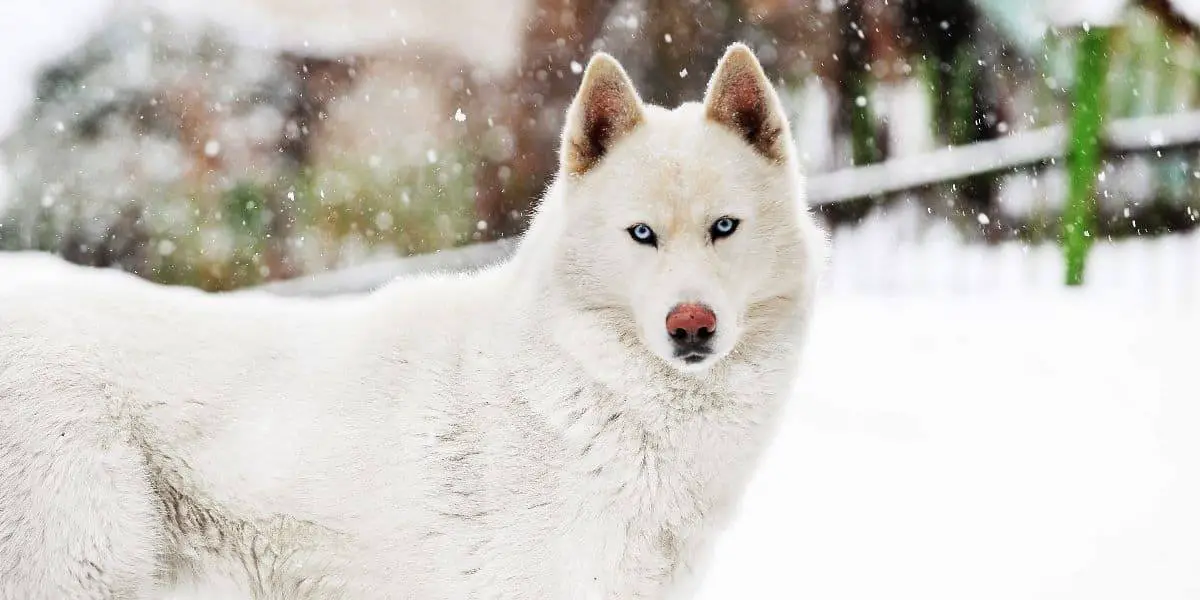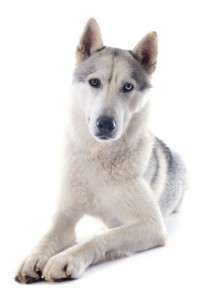
Siberian Huskies may look wolf-like, but in reality, their temperament and behavior is quite different. Here is what you can expect from the breed if you are considering a Husky puppy, or if you have a puppy and want to know what to expect as it grows up…
Lifelong behavioral traits start in puppyhood. Socialization amongst humans is essential and good breeders work hard to ensure puppies are welcoming to strangers. Indeed the breeding pair is chosen not only for their looks and physical appearance, but also for their temperament.
Huskies are generally loving and playful, easy-going and forgiving. With effective socialization and supervision, they get along just fine with children. However, they make terrible guard dogs. Around strangers, they are most likely to dish out kisses and engage in play, rather than defend and bark. Huskies don’t bark much anyway. You are likely to hear high pitched squeals and howling instead.
Their high-energy nature makes Huskies ideal for active families. They would be great jogging companions. Lap dog? Possibly, but don’t get your hopes up. After a Husky is done with exercise and play they might just wander off to a quiet corner and lie down. You will need to get used to their independent nature.
If left alone, or if the mental and physical exercise is not sufficient, Siberian Huskies are going to get bored. Boredom leads to destructive behavior such as:
 Chewing on furniture or any other object within reach
Chewing on furniture or any other object within reach- Digging holes
- Attempting to escape, open doors, release latches
- etc.
This means you are going to need to play with and exercise your Husky from puppy stage all through its life. An hour or more every single day is not uncommon. You can read more about the exercise requirements of a Husky here.
Their energetic nature also means they want to go off exploring. Remember these are sled dogs bred to pull loads over long distances. Endurance is a hallmark quality, but also a double-edged sword. You will need to keep your Husky restrained with a leash or harness when out in the open for fear he or she will take off without warning.
Unless the dog has been socialized from an early age amongst other animals, it probably won’t get along so well with smaller dogs, cats, birds, rabbits, etc. Such animals could be seen as prey. However with gradual, monitored, and restrained socialization a Husky can happily share a home with smaller pets.
Despite the wolf-like appearance, Siberian Huskies are gentle and loving pets. With lots of energy to burn they need plenty of exercise and stimulation to avoid destructive behavior. However with proper socialization and effective training they can be a loyal family pet that gets along with strangers, both human and animal.
Doggy Dan has some tips on helping your dog settle in the family home:
Need some help with that training? Check out Doggy Dan’s training. It’s online, affordable, and packed full of tips and tricks to help you bond better with your dog.